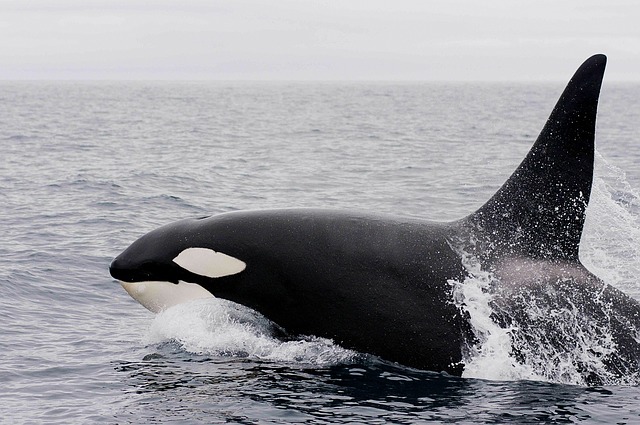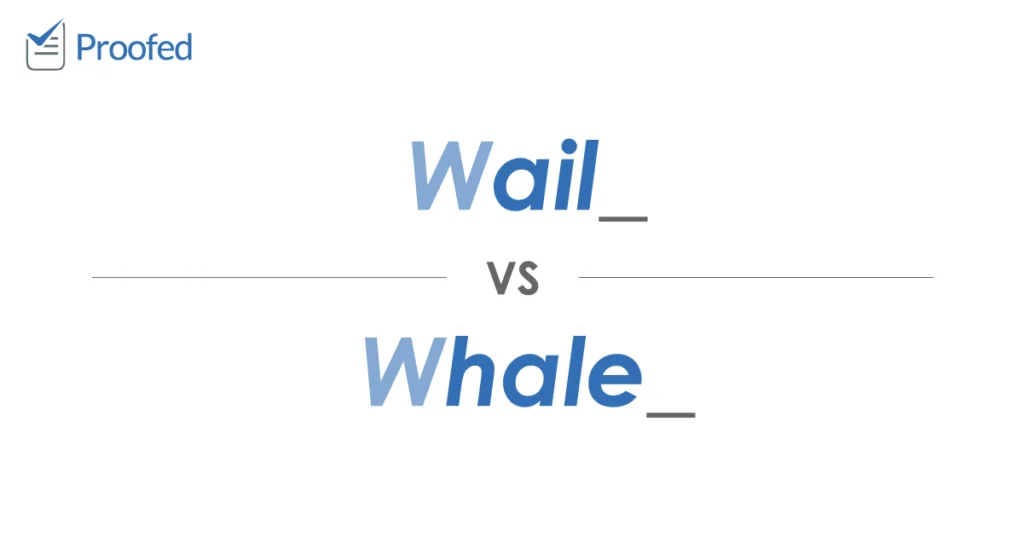What is the difference between a cry of pain and a 190-ton marine mammal? Well, not a huge amount when it comes to pronunciation! The words “wail” and “whale” sound identical, which means that they’re easy to mix up. But these terms also refer to very different things, so check out our guide to make sure you always pick the right word in your written work.
Wail (Cry or Scream)
The word “wail” can be either a noun or a verb. In either case, it refers to a high-pitched cry or scream of pain, grief, or anger:
Noun Usage: They heard the wail from upstairs.
Verb Usage: She wailed in sadness when she saw the news.
More rarely, “wail” is also used to mean “play a tune exceptionally well.” However, this is largely an old piece of jazz slang and not found in most modern English writing.
Whale (Large Sea Mammal)
“Whale” is almost always a noun and can refer to a number of large sea mammals. For instance:
Find this useful?
Subscribe to our newsletter and get writing tips from our editors straight to your inbox.
We are going to sea to watch the whales later today.
There are many different types of whale, ranging from the relatively small dwarf sperm whale (usually around 9ft long) to the massive blue whale (up to 98ft long). But all of them are “whales.”

(Photo: skeeze/Pixabay)
“Whale” can also be used as a verb to describe the act of hunting for whales (i.e., whaling or whale fishing). But this is illegal in most countries now, so it is not commonly used.
Summary: Wail or Whale?
“Wail” and “whale” might sound alike, but they look very different written down. As such, it should be easy to tell these terms apart once you know what they mean. Remember:
- Wail can be a verb or a noun and refers to a cry of despair or grief.
- Whale is almost always a noun and refers to a large sea mammal.
As a final note, try not to get either of these words confused with “Wales,” which is part of the UK. And if you’d like any more help with the spelling in your writing, feel free to get in touch today.



